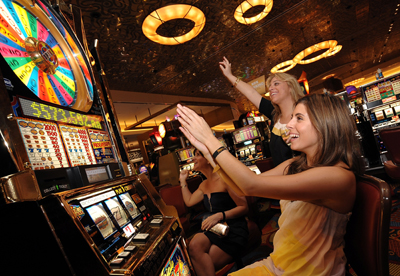
In the world of gambling, where chance and strategy intersect, a unique tapestry of beliefs emerges—one that intertwines luck, fate, and the enigmatic nature of casino games. Casinos, bustling with excitement and anticipation, are not just venues for placing bets; they are also arenas in which superstitions thrive. From the novice player to the seasoned gambler, these mysterious practices often shape how individuals approach the games they play, holding the belief that their actions can influence the outcome in ways that go beyond mere probability.
When players gather around roulette wheels, blackjack tables, and slot machines, the atmosphere is thick with stories of lucky charms, rituals, and codified behavior that defy logic yet provide a sense of comfort. Whether it’s wearing a specific outfit, following a particular sequence of bets, or even avoiding certain numbers, the attachment to various superstitions reflects a deep-rooted desire to manipulate the uncontrollable. This article delves into the captivating world of casino game superstitions, exploring the beliefs that both entertain and mystify those who dare to play.
Historical Roots of Superstitions
Casino activities have long been interwoven with an array of superstitions that go back to primitive societies. The origins of these ideas can be associated to humanity’s fundamental wish to manage the unpredictable outcomes related with chance and uncertainty. In primitive civilizations, games of uncertainty were often linked to spiritual practices. Players would invoke blessings or ask for favor from gods, believing that their actions could influence the odds in their advantage. This groundwork laid the foundation for the variety of superstitions that proliferated as betting evolved over time.
During the Middle Ages, gambling became a widespread hobby across Europe, and with it, a diverse tapestry of superstitions emerged. Players adopted different rituals and charms, believing they could affect the results of games. The importance of numbers, in particular, began to appear in superstitions pertaining to card games and dice. The number seven was often considered auspicious, while different numbers carried bad connotations. These ideas mirrored the social contexts of the time, adapting as they moved through generations and transformed to new gaming environments.
As casinos developed in the 17th century, particularly in Italy and France, the atmosphere surrounding betting became steeped in mystery. The growing accessibility of casino activities allowed for the spread and diversification of superstitions among players. Concepts like fortunate charms, special seating positions, and rituals gained importance, creating a unique culture within gambling establishments. As these traditions continued to thrive, they became integral to the identity of gambling activities, illustrating how history and culture shape the belief systems that influence how gamblers connect with fortune.
Popular Casino Myths
Beliefs surrounding casino games are abundant and diverse, mirroring the dreams and fears of gamblers as they engage in random activities. One of the most common beliefs is that specific digits bring luck or misfortune. For example, the number seven is often seen as a favorable number, frequently embraced by gamblers looking for a positive result. Conversely, the digit thirteen is routinely considered unlucky, leading many players to avoid it during their gaming periods.
Another frequent belief relates to rituals that players believe can influence their odds. It could be blowing gently on the dice before a throw, using a specific gesture to place a bet, or even wearing specific items of clothing, many people feel that these actions can tilt luck in their favor. These practices offer a feeling of control in an otherwise random environment, reinforcing the idea that luck can be manufactured through personal beliefs and customs.
Lastly, the ambiance and atmosphere of the gambling house itself contributes to superstition. Many gamblers suggest that the presence of specific symbols, such as four-leaf clovers or fortunate tokens, can enhance their odds of success. Additionally, gamblers might adhere to the notion that victory streaks can be halted by mundane events, such as a person passing by or a spill at the gaming surface. The collective atmosphere in a gambling house can amplify these beliefs, creating a shared culture of myths that goes beyond individual experiences.
Impact of Superstitions on Players
Superstitions play a crucial role in the psychology of casino players, often affecting their behavior and choices. A lot of gamblers think that fortune can be influenced through various rituals, such as donning a talisman, selecting specific colors, or avoiding certain numbers. This reliance on superstitions can create a sense of authority in an environment that is intrinsically unpredictable. Players often feel more self-assured and involved when they believe that their actions could sway the result of a game in their favor. Gacam888
The influence of these superstitions extends past individual players, affecting the overall atmosphere inside the casino. For instance, a player who believes in the luck of a certain slot machine might draw a crowd, as onlookers are intrigued by their apparent success. This collective belief can heighten excitement and create a lively environment, leading to an interesting experience even for those who may not necessarily be believers themselves. The buzz around specific games can lead to higher participation and extended playing sessions, supporting the casino’s lively social scene.
In some cases, superstitions can lead to detrimental effects for players. Depending too much on rituals can result in poor gambling decisions, as some may ignore basic strategies in favor of baseless beliefs. Additionally, the stress to perform rituals may increase anxiety and tension, detracting from the pleasure of the experience. Ultimately, while superstitions can enhance the thrill of playing casino games, they can also lead to unwise choices that overshadow the enjoyment and amusement intended in the casino experience.
